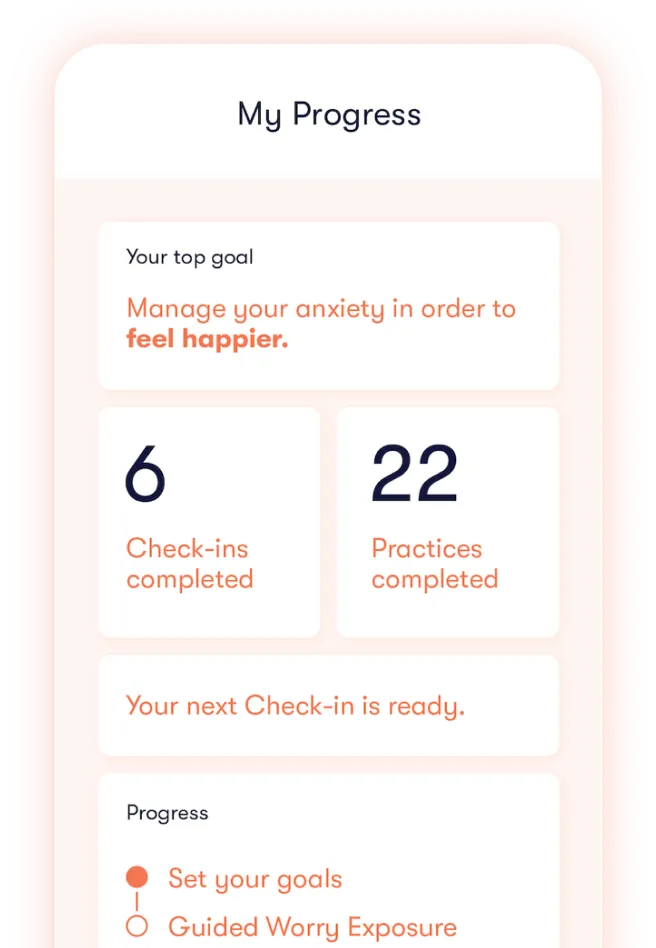Trustedmentalhealthcareatyourfingertipsyour fingertips
Our digital treatments for insomnia and anxiety are safe, effective, and drug-free. No prescription is required
58%
of people experience moderately severe side effects.2
Medication isn't the
only option
1 in 8 adults in the UK are prescribed medication for their mental health – but medication isn’t always the best option.1
<50%
remission rate for common medications.3 4
75%
of people prefer a non-drug option.5
Medication isn't the
only option
1 in 8 adults in the UK are prescribed medication for their mental health – but medication isn’t always the best option.1
58%
of people experience moderately severe side effects.2
<50%
remission rate for common medications.3 4
75%
of people prefer a non-drug option.5
Treatments that
change lives
Our treatments are not just another app on your phone. They’re the feeling of finally getting a good night’s sleep and waking up with enough energy for the day. They’re the difference between managing and thriving. They’re there for you whenever and wherever you need them.
We're trusted by over 500,000 patients globally
Helping
you
to
sleep
better
Sleepio is a NHS-funded six-week programme delivering 10-minute cognitive behavioural therapy sessions to treat insomnia.
Learn more





Tackle anxiety
and
worry
Daylight is a clinically proven cognitive behavioural therapy programme for treating anxiety and worry.
Learn more
Access treatment instantly

Sleepio
sleepio.com/nhs
Sign up now

Daylight
trydaylight.com/nhs
Sign up now
Support your patients
Our treatments are more than just an app
Read patient stories
Instant Access
Patients can start treatment in 3 easy steps. Sign up, download the app, and login! (no prescription needed).
Support when you need it
Support & resources are available in the moments when your need them most! (whenever and wherever).
Secured Data
Treatments are GDPR & DTAC compliant, Cyber Essentials and HITRUST certified.
Science-backed insomnia and anxiety treatments
We’re committed to gold-standard clinical evidence. We have 64 publications with more than 28,000 participants, including 13 randomised controlled trials (RCTs).
Our research

.webp)

